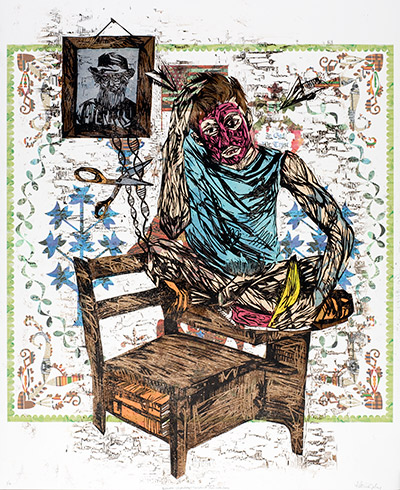Creating a New Focus on the African Diaspora
TC scholars build a new awareness of a global community scattered by slavery
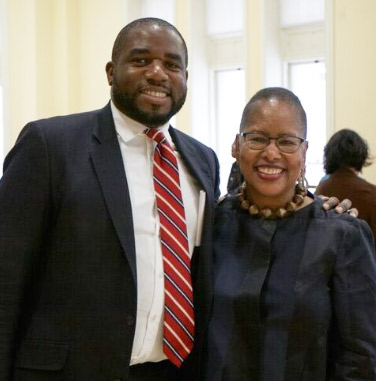
But now – thanks in part to Teachers College – that picture is changing. The College Board has tentatively approved plans for an Advanced Placement (AP) course on the subject, the content for which is largely being developed at TC, that could be offered to high school students as early as fall 2017. In related work, the Comparative and International Education Society (CIES) – the leading professional organization for international scholars – has created a new special interest group (SIG) focusing on the diaspora. TC scholars are also deeply involved in that work.
The diaspora refers to the communities worldwide descended from peoples from Africa, including the nearly 1 billion who were forcibly dispersed by the transatlantic slave trade that flourished between the 16th and 19th centuries.
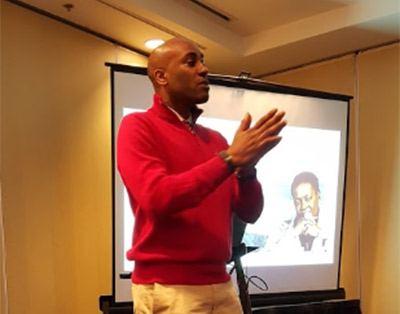
“If the African Diaspora was a country, it would be the third largest on the planet after China and India. It encompasses half a billion people today with a set of common experiences, yet other than in Brazil and the United States, it’s often invisible.”
—Ernest Morrell, Macy Professor of English Education
“If the African Diaspora was a country, it would be the third largest on the planet after China and India,” says Ernest Morrell, TC’s Macy Professor of English Education. “It encompasses half a billion people today with a set of common experiences, yet other than in Brazil and the United States, it’s often invisible. There are descendants of the diaspora in the U.K., France, Germany, Mexico, Colombia, Ecuador, as examples, but they are highly marginalized. It wouldn’t be so hard to create this new focus if the diaspora were a country with borders and a flag, so we are sounding a call to action to the research community to imagine it in just that way.”
Both Morrell, who directs TC’s Institute for Urban and Minority Education (IUME) and Henry Levin, William Heard Kilpatrick Professor of Economics & Education, are key players in both efforts, which are being conducted under the auspices of The African Diaspora Consortium (ADC), a nonprofit dedicated to improving outcomes for African-descended populations.
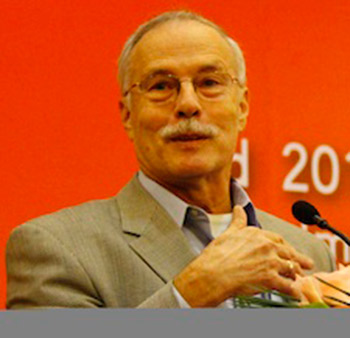
“The class will be a gateway for African-American students, in that it will encourage them to take more AP classes. That’s why I’m so excited about this class.”
—Henry M. Levin, William Heard Kilpatrick Professor of Economics & Education
Levin, a past CIES president who serves on the Consortium’s board, is an internationally renowned education economist who is gathering economic data on diaspora countries. A new CIES African Diaspora SIG lecture, given at the organization’s annual meeting, is named for him.
Morrell, past president of the National Council for Teachers of English, chairs the Consortium’s Planning and Advisory Committee and, through IUME, houses and directs all research and best practice initiatives and is putting together much of the content for the AP course. He delivered the inaugural Henry M. Levin African Diaspora Lecture at the 2016 CIES annual meeting to rave reviews.
The development of an AP course on the diaspora is aimed in part at raising awareness among black youth about the historical context of current issues of race and privilege. The AP class will touch upon the common experiences of the diaspora such as imperialism, resistance to oppression and cultural practices. The class will start in the 1400s and move to the present, with a focus on communities in the Americas, Africa and Eurasia.
“The AP class will give students a full picture of historical and cultural experiences of people throughout the world,” says Kassie Freeman, African Diaspora Consortium President, recently named a Faculty Fellow at IUME and another past president of CIES. “African descendants in diaspora countries tend to be the most uneducated and under-educated. We tend to have the highest degree of poverty, and while we know that intuitively, no one has examined these issues comparatively and empirically. A course on just African-American history, for example, doesn’t give you a full picture of how African Americans came to this country, how they differed from slaves brought to other countries, and how their educational experiences came to be. It doesn’t define what poverty means here or in other diaspora countries or put it in ways that will be measureable. That’s what Dr. Levin will do – give us the empirical data so that we can better align our work for global advocacy and social justice.”
“I think this class will attract a great many African-American high school students,” said Levin. “And in my opinion, the class will be a gateway for African-American students, in that it will encourage them to take more AP classes. That’s why I’m so excited about this class.”
The academic and cultural muscle assembled by the African Diaspora Consortium is formidable. In addition to Morrell, Levin and Freeman, it includes:
- Patrick Manning, a Professor Emeritus of World History at the University of Pittsburgh who is an authority on the African diaspora as well as President of the American Historical Association. Manning is spearheading development of the AP course, which he plans to pilot in schools in Pittsburgh and Alabama, and has made presentations to the Educational Testing Service with an eye toward development of future standards and assessment.
- The Honourable Paula Cox, Board Chair, and a former Premier of Bermuda. Cox has brought leadership and connections to the African Diaspora Consortium.
- The Right Honourable David Lammy, a Member of Parliament for Tottenham, United Kingdom, who was appointed in 2015 by then British Prime Minister David Cameron to head a national initiative on black and minority issues; and scholars in six diaspora nations. Lammy delivered the Consortium’s inaugural lecture on the diaspora, speaking last spring at TC.
- A group of actors and musicians who are supporting a strand of the project focusing on the arts across diaspora countries. Among them are Wendell Pierce, best known for his TV role as Detective Bunk Moreland in “The Wire”; the trombonist Delfeayo Marsalis, of the famed Marsalis jazz family; and Katrina Andry, a visual artist based in New Orleans whose woodblock prints explore racial stereotypes.
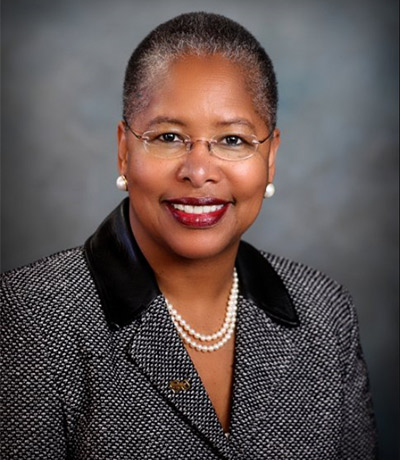
“This is a story that is so central to an understanding of history and cultures, and to an understanding of the human experience, that it just has to be examined and told.”
—Kassie Freeman, President, African Diaspora Consortium
With that kind of backing, it’s not surprising the African Diaspora Consortium is making rapid headway. But Freeman says the project has had buy-in from the first on its own merits.
The Consortium also is creating an exchange program that will serve college students who live in diasporan countries. The initial participating countries will be the United States, the United Kingdom, Brazil and Bermuda. Students will conduct cultural research in all four countries.
That effort will be mirrored by the broader international research program about the diaspora, whose team is gathering input from researchers from around the world. Beyond quantifying precisely how many people today are descended from the diaspora, the research will shed new light on how the descendants live and learn, the disadvantages they face, and their cultural practices. Each Sunday, for instance, the slaves in New Orleans would gather in Congo Square, explains Morrell. They were from Central and Western Africa, so they spoke different languages. But they communicated through the language of music. “They created their own music as well as their own dance, their own food, their own religious faiths,” he says. “They were not passive.”
With that legacy in mind, the arts-themed strand of the project will support another international exchange program serving emerging artists and art teachers who live in diaspora cultures.
For Freeman, former Interim President of the Southern University System, the nation’s only Historically Black College System, the growing momentum of the work around the African diaspora is a lifelong dream come true.
“The creation of this class, as a major part of our work, is so exciting that I’m not sure I can capture my emotions in words, and I’m so grateful to Teachers College for all its support,” she says. “ADC owes it early successes and accomplishments to its outstanding global leadership and to TC’s academic standing, reputation, and outstanding scholars, like Hank and Ernest. We work as a team and as one.”
“We want our AP course to be not just for students who are African descendants, but for all students to have a common understanding of a beginning of a history and the parallel experiences of African descendants globally. This is a story that is so central to an understanding of history and cultures, and to an understanding of the human experience, that it just has to be examined and told.”
—Robert Florida
Published Monday, Oct 10, 2016
